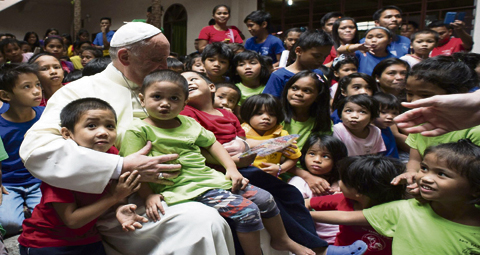August 28 | ![]() 0 COMMENTS
0 COMMENTS ![]() print
print

The Scottish Church after McLellan
By Professor John Haldane
The abuse of children, and of the vulnerable more generously, is a serious evil and in theological terms a grievous sin. That it should have been perpetrated by some priests, religious and lay Catholics working with children is a scandalous evil: for the wrong done is not only to the immediate victims but to those whose faith is weakened or destroyed on account of learning of it and of the failure of superiors and others in positions of responsibility to deal properly with it.
It will take more than a generation before the abuse scandal becomes a memory of a bad times and the recovery of the position of priests and bishops will only be achieved by good example. Some may recall the story of how the actor Alec Guinness was led to become a Catholic notwithstanding the bad things he had been brought up to believe about the Church.
In 1954 he was in France playing the part of Fr Brown in a film adaptation of GK Chesterton’s stories about the fictional detective priest. One evening while, still in his priest costume, he walked back to where he was staying in a Burgundy village. As he wandered along a little boy, mistaking him for a real priest, took his hand and walked with him. The incident touched Mr Guinness deeply. “Continuing my walk,” he said, “I reflected that a Church that could inspire such confidence in a child, making priests, even when unknown, so easily approachable, could not be as scheming or as creepy as so often made out. I began to shake off my long-taught, long-absorbed prejudices.”
Sixty years later the image of a priest walking hand in hand with a little boy conjures not delight but suspicion and even dread. These reactions are one pervasive consequence of the exposure of abuse compounded by the serious wrong of protecting the guilty so as to preserve the Church’s reputation, rather than protecting their victims.
All of this observed it should also be noted that it was the Scottish Catholic Church that commissioned Alan McLellan to convene a committee to review and report on the safeguarding policies and practices of the Church. Although the report is lengthy its recommendations are briefly stated and they have been accepted immediately, in full and without qualification.
Apart from the benefit to the Church of implementing the recommendations it may also be that other institutions and groups such as teachers, health professionals, social workers, care workers, politicians, press and media that have also been afflicted by the disease of abuse may adopt similar policies and practices.
At the same time we need to set all of this in context and in perspective, recognising the recurrent tendency to sin, but also the dangers of losing all hope of innocent adult child relations, and of descending into panic and persecution, denouncing without evidence and stigmatising without just cause.
Trust and confidence can be rebuilt but the Church needs to work hard to achieve that and this is a matter for laity as much as for clergy. The McLellan report provides the opportunity for Catholics to do some serious collective thinking about how to integrate the different components of the parish, the diocese and the national Church. We cannot undo past wrongs but we can do God’s work in bringing good out of evil. Archbishop Philip Tartaglia’s humble and gracious response to the review and its recommendations is an example to emulate and on which to build.
— John Haldane is Newton Rayzor distinguished professor of philosophy at Baylor University, Texas, and professor of philosophy at St Andrew’s University.











